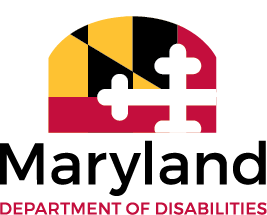What is Disclosure?
Disclosure is telling someone something that they did not know about you, such as having a disability. There are several things you need to consider:

Learn More about Disclosure
The decision to disclose is personal, and you have the right to disclose or not disclose. Here are some tips on how to disclose. It’s also important to know the laws that protect protects your privacy; and pros and cons of disclosing. With this information you will be able to make an informed decision about disclosure.
Tips for Disclosing
Simple things you can do to feel confident if you decide to disclose information information about your disability. Tips for Disclosing
Laws & Regulations
Learn about the laws and regulations that protect your right to disclose. Laws and Regulations
Disclosure and Work
Suggestions on what kind of information you should consider to tell an employer. Disclosure and Work
Advantages & Disadvantages of Disclosure
Learn the pros and cons of disclosure so you can make an informed decision. Advantages and Disadvantages of Disclosure
Tips for Disclosing
Prepare a script for disclosing and practice it with friends, family members or a counselor.
Laws and Regulations
There are certain laws and regulations that protect your right to disclose. They are:
Americans with Disabilities Act (ADA)
The Americans with Disabilities Act or ADA prohibits discrimination on the basis of disability in employment, public entities, public accommodations, transportation, telecommunications, and recreation.
Section 504 of the Rehabilitation Act of 1973
Section 504 of the Rehabilitation Act prohibits discrimination based on disability in federally funded and federally conducted programs or activities in the United States.
Maryland’s Human Relations Law
Every Marylander is guaranteed equal opportunity in receiving employment regardless of race, color, religion, ancestry or national origin, sex, age, marital status, sexual orientation, gender identity, disability, or genetic information. Maryland 's Human Relations Law
Disclosure and Work
If you make the decision to disclose, there are things to keep in mind about what kind of information you want to tell. It is important and helpful to tell information about:
When should you disclose?
Before the interview
If you are going to need an accommodation for the interview, you must tell the employer. For example, if you have a learning disability and you know that there is a test that is given during the interview, you might request that you take the test in a quiet area.
During the interview
Talking to the employer about your disability at the interview will let them know what supports and services you need to do the job. Make sure you talk about your skills and give examples of what you will need to do the job. For example, if your desk needs to be raised to a specific height to have room for your wheelchair, you would want to discuss this with the employer.
After you have been offered a job
If you need an accommodation to do the job you are offered, you will need to tell your employer. For example, if the job requires a medical test and you are taking medications, you might want to disclose this information to your employer.
While you are working
Now that you are working at the job, you might realize that you need an accommodation. In order for the employer to give you the accommodation, you will need to disclose. For example, if you are taking medication that makes you thirsty and you need to drink lots of water, you may have to take frequent bathroom breaks. You would want to talk with your employer about this.
You don’t need to disclose every detail of your disabiity
Remember it may not necessary to disclose every detail of your disability, only the information that relates to your job functions and performance. Once you have decided when to disclose, think about who you want to tell. If the reason you choose to disclose is to discuss accommodations, you will want to disclose to your supervisor and human resource manager.
What to tell you co-workers
Whether or not to tell your co-workers is another decision to make.
Advantages and Disadvantages of Disclosure
Advantages of disclosure are:
Disadvantages of disclosing are:
Talk with people you feel close to when deciding about disclosure
Decide if you will need an accommodation to do the job, think about the advantages and disadvantages of disclosing and practice what you are going to say.
Learn more about your rights and responsibilities.

